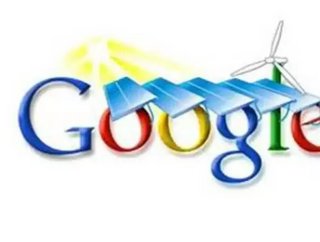Google Releases Clean Energy Innovation Report

Google has been one of the biggest corporate investors into renewable and clean energy technologies. In fact, the search engine giant has invested over $780 million in clean energy technologies and innovations such as wind power and both solar farms and rooftop solar installation. The company is also involved with electric car developer Aptera, biofuel venture Cool Planet Biofuels, and power conversion pioneer Transphorm. Now, Google has crunched the numbers to uncover just how much change clean energy technology and innovation could have on the economy and the environment in a report it has released this summer.
According to Google, clean technology innovations can add 1.1 million jobs and $158 billion to the United States’ gross domestic product (GDP) per year, while reducing annual household energy costs by $942 per home by 2030. If policies are made stronger, those numbers could increase to a GDP of $244 billion and nearly 2 million jobs, while saving homes $995 annually.
SEE OTHER TOP STORIES IN THE WDM CONTENT NETWORK
Google's $5 Billion Offshore Wind Transmission Line
Google Invests $168 Million in BrightSource Energy's Mojave Solar Plant
Read the latest issue of Energy Digital!
The Google report uses a calculation tool provided by McKinsey and Co., coupled with government data and assumptions based on industry trends. The report presupposes breakthroughs in technology and more aggressive clean tech energy policies to fulfill such figures. It covers everything from clean power generation to electric cars, energy storage to natural gas.
According to Google, a delay in increasing investment and development in clean tech between 2010 and 2015 will result in $2.3 trillion to $3.2 trillion in unrealized GDP and cost 1.2 million to 1.4 million jobs by 2050.
The report’s predictive models reveal that significant replacement of coal with clean energy sources isn’t likely to occur until after 2030. But after then, clean technologies like solar and geothermal will be cheap enough to replace the dirty yet widespread power source.
Google also notes that cheap natural gas will likely slow down clean energy development over the next few decades. However, the report claims that natural gas is still cleaner than coal, and its widespread use will create cheap electricity, thus making electric cars more viable.






